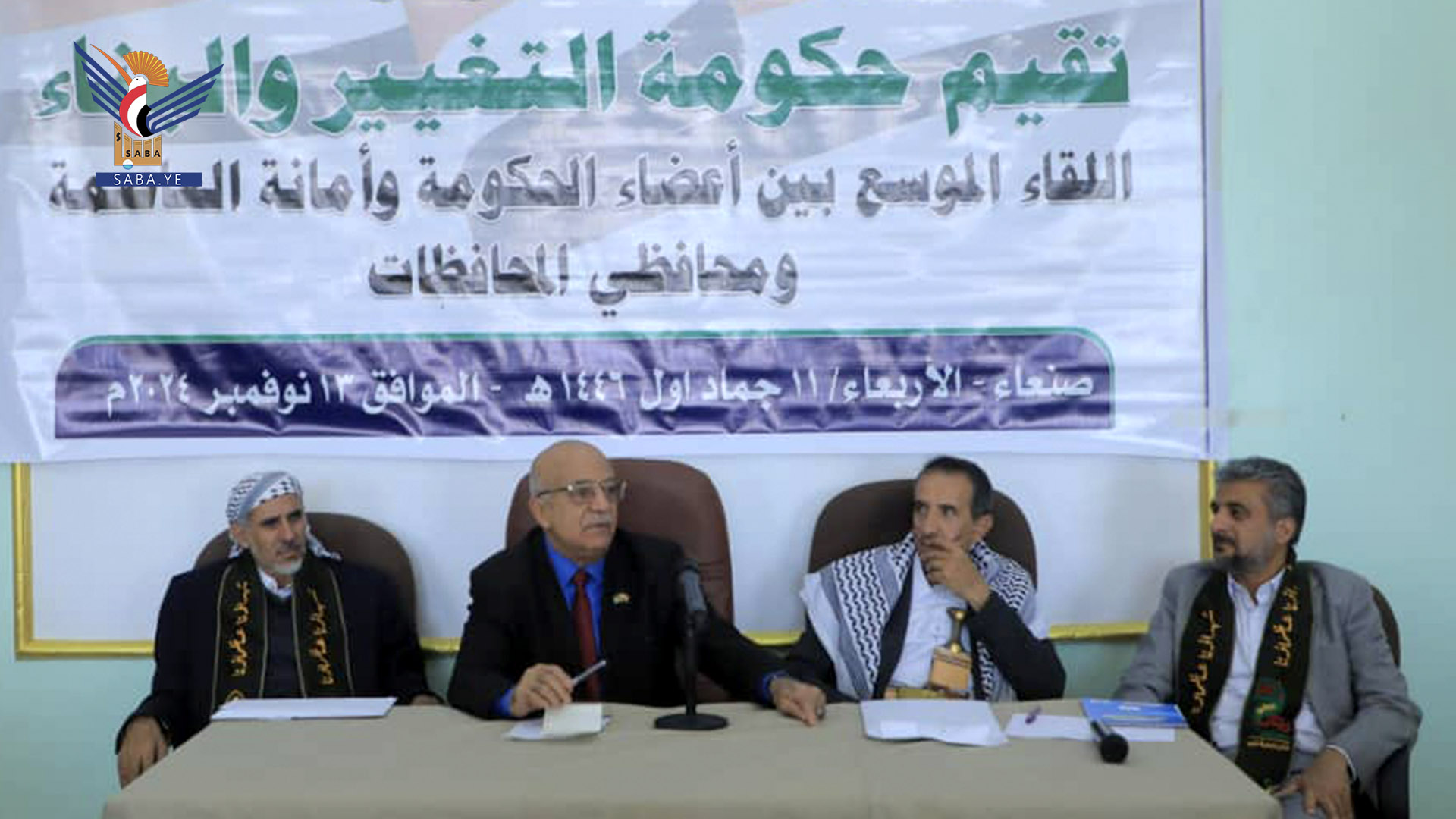Sana'a - Saba:
An expanded meeting was held on Wednesday in the capital Sana'a, bringing together the head and members of the government of change and construction, the mayor of the capital, and the governors of various Yemeni provinces.
The meeting aimed to enhance and develop coordination between the government and local authorities, in line with the leadership’s drive for change, construction, and a qualitative shift in public service, production, and citizen welfare.
The discussions focused on optimizing the integration of roles between government bodies and local authorities, aiming to mobilize collective efforts to serve the public interest. Key to this objective is improving productivity, ensuring efficient service delivery, and organizing efforts across all levels of government to foster a cooperative approach to national development.
The meeting emphasized the need for discipline in adhering to official working hours across public service units. It was stressed that the effective use of working hours is crucial to accelerating the completion of transactions and responding promptly to the needs of citizens and other beneficiaries of government services.
The officials also discussed strategies to encourage active societal participation in work, production, and local development. Reviving the spirit of cooperation that has driven vital service and infrastructure projects was highlighted as essential for the continued improvement of societal conditions.
Further discussions focused on addressing the challenges and imbalances currently hindering effective joint work between government and local authorities. Proposals were presented by the Secretary of the Capital and various governors, with suggestions on how to solve these issues and avoid future setbacks. These proposals aim to bring about visible changes in the mechanisms of joint work, particularly in administrative, service, production, and development sectors.
The meeting also addressed the ongoing efforts to mobilize and prepare for defense against the American-British-Israeli aggression and other potential threats to Yemen. The leadership reaffirmed the central and local authorities' shared responsibility to remain vigilant and ready to confront such challenges. The positive results of the past phase, including high levels of participation in national defense activities, were commended, and it was stressed that preparedness must remain a priority, given the gravity of the threats facing Yemen and the wider region.
In a show of solidarity, the meeting congratulated the Yemeni Armed Forces on their recent successful operations, which targeted the U.S. *Abraham* aircraft carrier in the Arabian Sea and two American destroyers in the Red Sea, which were reportedly preparing for new aggression against Yemen. The leadership praised the advancements in Yemen’s military manufacturing sector, highlighting the development of ballistic and hypersonic missiles, drones, drone boats, and submarines, underscoring the nation's increasing self-reliance in defense capabilities.
The meeting also reaffirmed Yemen’s steadfast support for the Palestinian people and their ongoing struggle, as well as its commitment to the Lebanese people. The leadership vowed to continue supporting these causes, despite the ongoing American-British-Zionist aggression.
Participants were also briefed on a previous speech by the leader of the revolution, Sayyed Abdul-Malik Badr al-Din al-Houthi, which outlined key directives on enhancing joint work between the government and local authorities. The speech emphasized the importance of prioritizing citizen services, alleviating their burdens, and revitalizing community roles through sponsorship and the development of local initiatives across various fields.
The meeting concluded with a renewed commitment to strengthening the partnership between central and local authorities in order to improve the welfare of the Yemeni people and continue the nation’s march toward development and self-sufficiency.

| more of (Local) |



